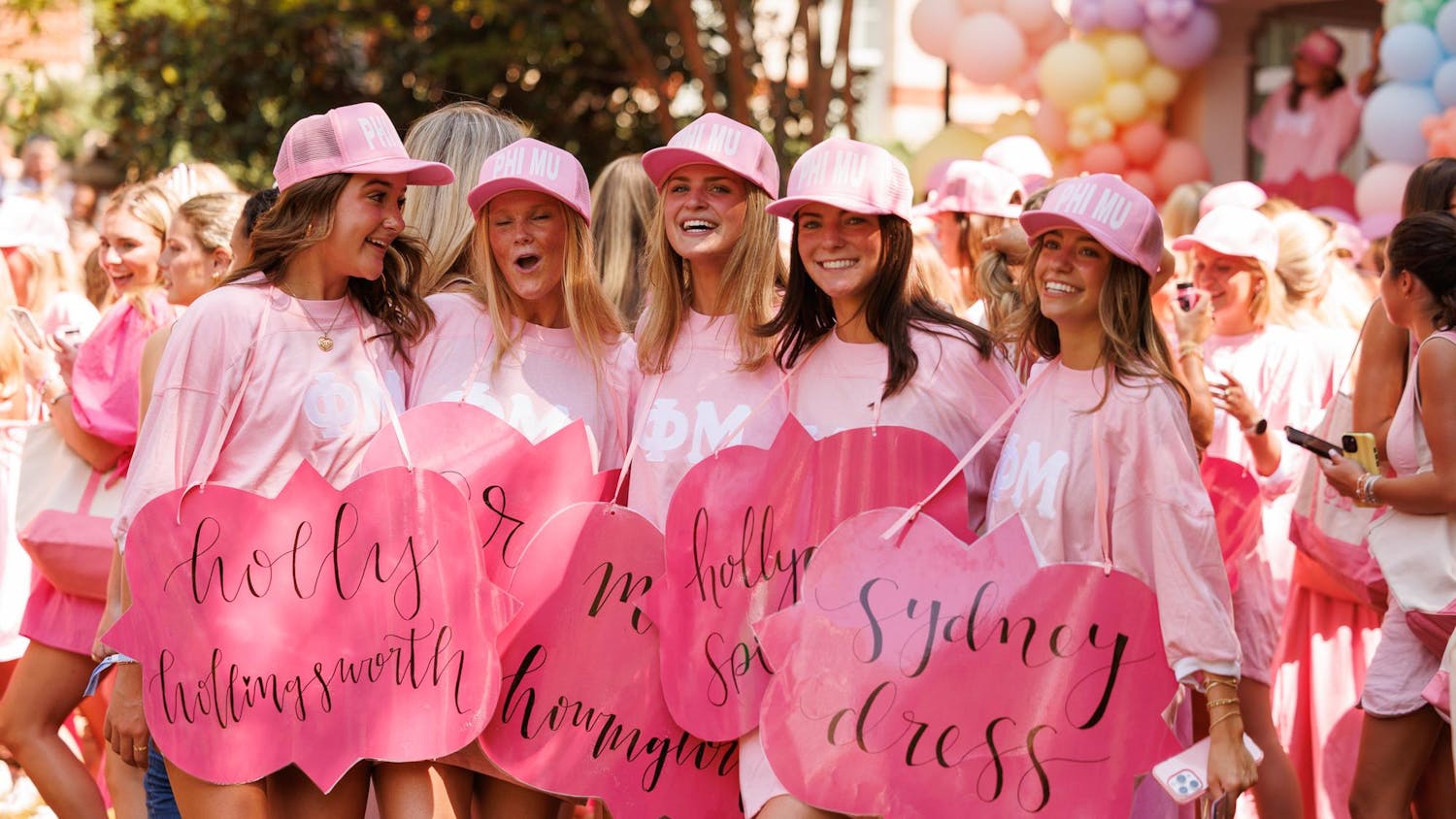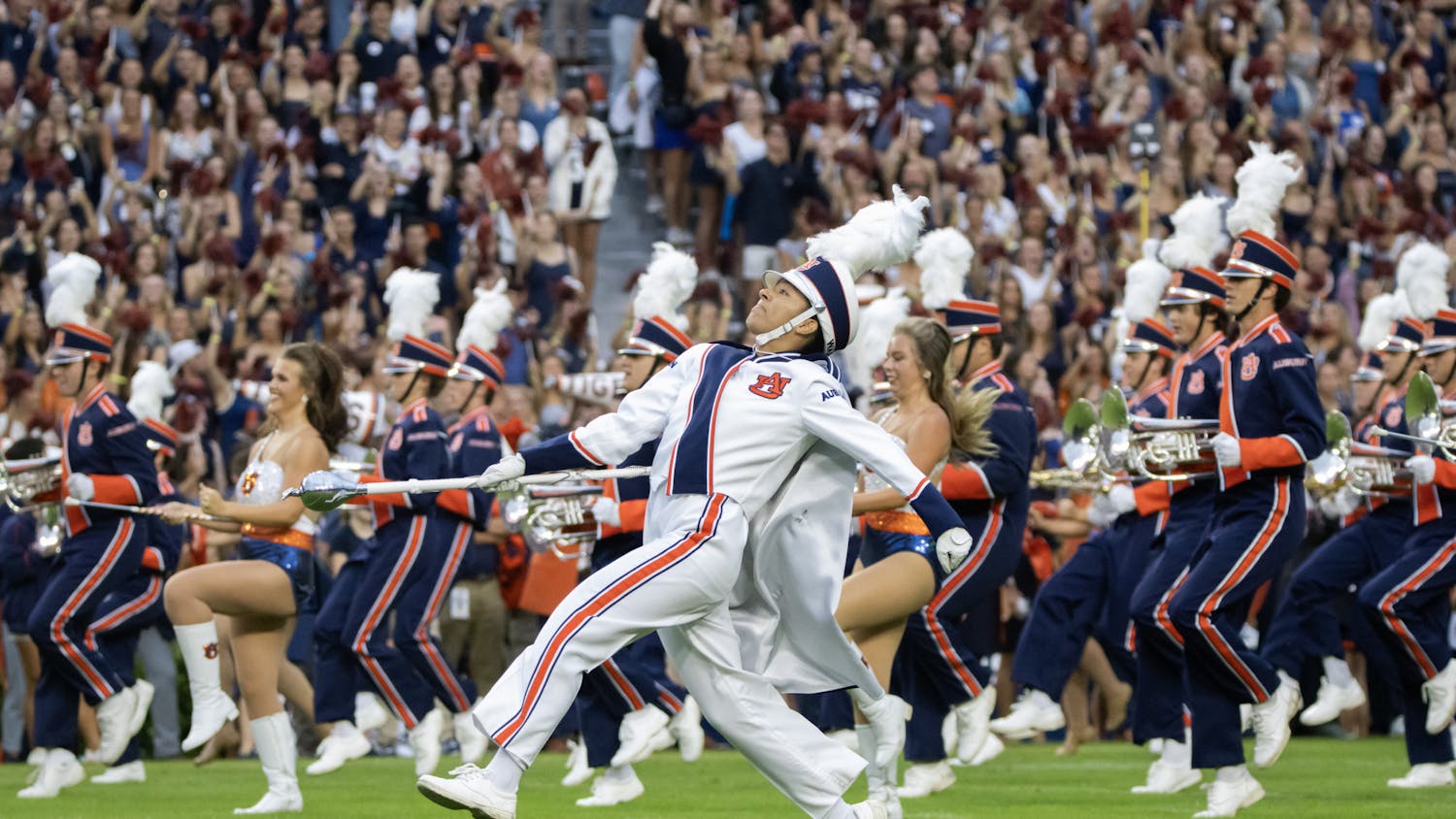Getting hit in the head with brick, having a gun pointed on him and writing a column was a normal day's work for Billy Winn.
A former reporter for the Atlanta-Journal Constitution, Winn delivered his lecture "Covering Civil Rights In Atlanta in the 1960s" as part of the Neil O. and Henrietta Davis Lecture series in Roosevelt Concourse Science Center Thursday, April 24.
"Atlanta today is not what it used to be," Winn said. "Despite its million residents, Atlanta looked and felt like a big country town with a very visible sleazy side. Atlanta made no effort to hide its old south roots, to say the least, and it was a particularly insensitive community to its black residents."
There were two sides to Atlanta back then, Winn said, a black one and a white one, with strict lines dividing the two.
With heroes and villains on both sides, knowing where to tread softly and who to trust could mean life or death, especially once the movement proved to be more than just a flash in the pan.
Winn said association with anti-segregationist editors like Ralph McGill and progressive thinking papers like the Atlanta Journal could lead to gunshots, burning crosses in yards and public displays of violence.
Winn said one time in the early 1960s when he was out on assignment in Poland, Ga. when a local resident threatened to shoot him simply for working for McGill's paper.
Another time he was pulled over by Georgia highway patrolmen for giving some members of the Student Nonviolent Coordinating Committee a ride in his car to the Georgia House of Representatives to protest.
"I can still see the burning wicks on the Molotov cocktails made out of whiskey bottles," Winn said. "I had friends in the poorer residential districts, or I felt that I did, that made me feel far safer there in downtown Atlanta."
During the beginning of the civil rights movement Winn met rising leaders like Dr. Martin Luther King Jr. and Stokely Carmichael as they were first gaining national attention.
"Dr. King was much more warmer and personal than he's portrayed today," Winn said. "He used to drive reporters crazy because he would always show up late to press conferences, but no one could be angry at him because he carried the weight of the world on his shoulders."
The power of Winn's stories was not lost on his audience, even for non-journalism students like Camren Brantley-Rios, junior in public relations.
"You read about Dr. King and it seems like it was so long ago," Brantley-Rios said. "The fact that this guy was actually around when Dr. King was a proponent of the Civil Rights movement, that confirms that it hasn't been that long."
Winn was reporting at the forefront for much of King's movement and bore witness to some of his most storied moments, but none carry as much gravity as his assassination.
Flying out the night of April 4, 1968 to Memphis, Tenn. just hours after King was shot, Winn described the darkened streets bustling with police around the Lorraine Motel as "seething with a sense of tragedy that affected everybody."
"None of us knew what we were getting into," Winn said. "I stumbled into a Southern Christian Leadership Conference meeting on the second floor of the Peabody hotel where (MLK successor) Ralph Abernathy and Bayard Rustin debate the future of America that day in that room and it was a volatile discussion. There were people who were very angry and ready to burn America down."
According to Winn, following the consecutive assassinations of King and Robert Kennedy and the ensuing national race riots that followed, Winn and many other reporters retired from covering the civil rights movement feeling crushed, disorganized and confused.
Winn said between the spread of unreliable news sources like the National Enquirer and the hands-off approach to modern reporting, the dedication to truth and justice behind journalism has all but deteriorated.
"Stokely Carmichael once told me not to write about him and the movement," Winn said. "Go home and write about the racism in your own communities."\0x200B
Do you like this story? The Plainsman doesn't accept money from tuition or student fees, and we don't charge a subscription fee. But you can donate to support The Plainsman.




